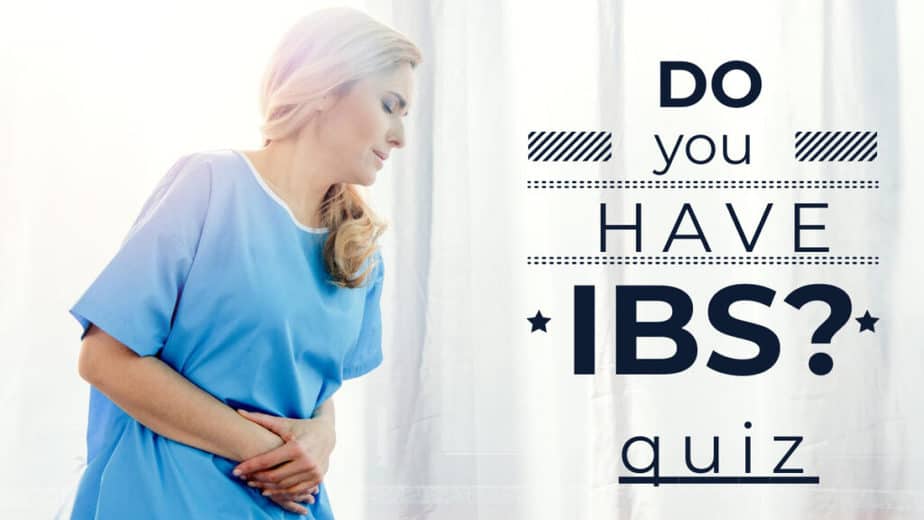Do you suffer from Irritable Bowel Syndrome? If so then you probably already know how painful it can be.
If you suffer from IBS, then chances are you’ve tried every single remedy out there. However, if you’re looking for something natural and effective, then read on!
Fortunately, managing IBS does not always require medication or invasive procedures.
In fact, simple lifestyle changes can make a significant difference in reducing symptoms and improving overall quality of life.
As someone who understands the importance of maintaining a sense of control when dealing with chronic conditions like IBS, I am excited to share some strategies that will help you take charge of your gut health and relieve painful symptoms.
In this blog post I’m going to show you how to relieve IBS pain in three simple steps.
- Related article: What is IBS Like?
How to Relieve IBS Pain – 3-Step Plan
A multipronged approach to managing IBS symptoms includes:
Step 1: Restoring Proper Gut Balance
Step 2: Examining Food Sensitivities/Allergies
Step 3: Fostering Emotional Well Being
Understanding your own unique reaction to the foods you eat, and the way your digestive system reacts when you’re stressed out is one of the keys to treating — and perhaps even preventing — irritable bowel syndrome.
First things first: It’s essential to get started by cleansing your body properly before trying any new dietary regimen. You’ll want to start with a clean, hydrated, and toned colon.
- Related article: Best IBS Treatment
Step 1: Restoring Proper Gut Balance
Probiotics contain beneficial bacteria which may improve digestive function and overall gut health.
The more support given to the colon, the less chance that toxins will accumulate inside your body. If you support your colon by eating foods rich in fiber and probiotics, you’ll help your body eliminate toxins before absorbing them into your bloodstream.
As more and more research shows, restoring certain types of gut flora may be an effective way to prevent bad bacteria from taking up residence in your digestive tract, helping prevent infection.
In particular, this is especially true for people who suffer from IBS, where there may be an excessive number of harmful bacteria in their intestines. Probiotics are the “good” bacteria your body needs to keep itself healthy.
Learn more about the Best Probiotics for IBS Sufferers.
Step 2: Examining Food Sensitivities/Allergies – Irritants and IBS
You may be surprised by what happens if you tweak your diet. Start making changes by slowly reducing any foods or products that may be causing irritation.
Monitor how your body responds to different foods – especially known irritants such as dairy and gluten-containing products like wheat, rye, and barley. These are the common players of bowel, lung, and skin diseases.
Read more about Gluten-Free Diets for IBS.
Symptoms caused by lactose intolerance may be mistaken for IBS-D (IBS with Diarrhea). Allergies to dairy products and gluten-containing foods are the result of genetics.
For some people, eating certain types of foods becomes an issue because they don’t digest them properly, like dairy and gluten. These issues may be due to genetics, lifestyle choices, or medical conditions.
Avoiding foods that cause inflammation may help keep your body healthy and feeling good.
Other Dietary and Nutritional Considerations
- Eat a variety of good, healthy foods.
- Eat five or six small meals throughout the day. Do not skip meals or eat a lot at one sitting.
- Drink plenty of water – at least half your weight in ounces daily. For example, if you weigh 150 pounds, drink 75 ounces of water.
- Minimize alcohol and caffeine consumption (coffee, tea, caffeinated sodas, and chocolate).
- Avoid sorbitol and/or fructose (and other food preservatives/additives ending in “-ol”).
- Consume 25-30 grams of fiber daily.
Read more about Chocolate and IBS.
To treat IBS-D effectively, be sure to consume enough soluble fiber so that you’re able to absorb water from your digestive tract. However, insoluble fiber may irritate an already sensitive colon, which would decrease stool transit time.
Learn more about different sources of insoluble fiber.
Avoid Gas-producing Foods Such:
- Foods high in fat
- Processed foods
- Fried foods (trans fats)
- Bagels
- Beans
- Broccoli
- Brussels sprouts
- Cabbage
- Cauliflower
- Lentils
- Onions
- Raisins
Learn more about Foods that offer relief from gas and bloating. Trying a Low FODMAP Diet can also help.
- Related: Low FODMAP Benefits for IBS
Psyllium is a natural vegetable fiber that helps to regulate bowel motility, and relieves IBS abdominal pain and irregular bowel habits. Some people find it effective to take two or three grams (or half a teaspoon) of psyllium after each meal to alleviate IBS symptoms.
People who suffer from IBS often find themselves skipping meals when their symptoms worsen. This often leaves them with reduced levels of nutrients. If they don’t get enough nutrients, then the balance of their whole body could be thrown off.
For that reason, people should consider taking supplements for IBS relief and an easy-to-absorb, high-quality multivitamin to ensure nutrients in the body.
Step 3: Fostering Emotional Well-Being – Stress and IBS
Anxiety and depression may affect our immunity by altering its function. More than 60% of all neurotransmitters originate from the Gastrointestinal GI system.
Low levels of one type of neurotransmitter – serotonin – have been associated with clinical obsessive-compulsive disorder, fibromyalgia, migraine, tinnitus, IBS, depression, bipolar disorder, and anxiety disorders.
- Related article: Serotonin and Digestion
If you’re feeling stressed out, anxious, depressed, or irritated, these feelings may be triggering your symptoms. The colon is connected directly to the brain via numerous nerve fibers, and is partially under control by the autonomous nervous system, which reacts to stress. For people who suffer from IBS, the colon may respond too strongly to even minor conflicts or stresses.
IBS is affected by the immune system, which in turn is adversely affected by stress. In order for you to manage IBS effectively, it’s important to take steps to relieve any stressful situations in your daily routine.
21 Tips for Managing Stress
If you find yourself overwhelmed by stress, there are many things you can do to help manage it.
- Implement a regular exercise program. Your regimen can be as simple as a quick daily brisk walk during your lunch hour.
- Consider alternative therapies for IBS like meditation, yoga, Tai Chi, Pilates, or learning a martial art.
- Have regular massages.
- Buy a stress ball to squeeze when you feel anxious.
- Breathe deeply throughout the day – remind yourself with a note on your computer or refrigerator – even phone apps can remind you these days!
- Take regular stretch breaks.
- Go for walks, especially in serene settings.
- Take time out from work and hectic social schedules.
- Distract yourself from worry – take a course, develop a hobby, read a book, see an uplifting movie, or play peaceful music.
- Confide with family and friends, or talk to a professional counselor. Learn more about how behavioral therapy can help IBS symptoms.
- Keep a journal, expressing the things that are troubling you.
- Make it your policy to just say no to people and activities that foster stress in your life.
- Set achievable goals.
- Manage your time wisely.
- Learn how to better manage your finances to decrease financial stress.
- Stop overanalyzing.
- Appreciate yourself – spend time alone, perhaps listening to your favorite music.
- Make changes, even if it’s scary.
- Take a hot bath.
- Get an adequate amount of sleep.
- Enjoy your sensuality: safe sex is a great stress reliever!
Remember, mom was right – don’t be so hard on yourself! Stay positive, learn to laugh, and try to smile even if you’re angry or stressed out.
A Few Final IBS Do’s and Don’ts
For everyone – and especially those with IBS – it is important to…
- Never put off the urge to have a bowel movement.
- Avoid chemical laxatives or enemas – they may provide immediate relief, but in the long run you’ll be no further ahead by conditioning yourself to rely on such methods to produce bowel movements.
- Make sure to avoid unnecessary medications – they can wreak havoc on the digestive system.
IBS Pain Relief Final Thoughts
All in all, IBS pain is one of the most common reasons why people seek medical attention. It’s also one of the most misunderstood conditions, which makes it frustrating for both sufferers and their doctors. If you’re suffering from IBS pain, it’s important to know what causes it, and how best to treat it.
Follow the 3-step plan above to start feeling better from your IBS symptoms.
For more on IBS, check out these articles:


